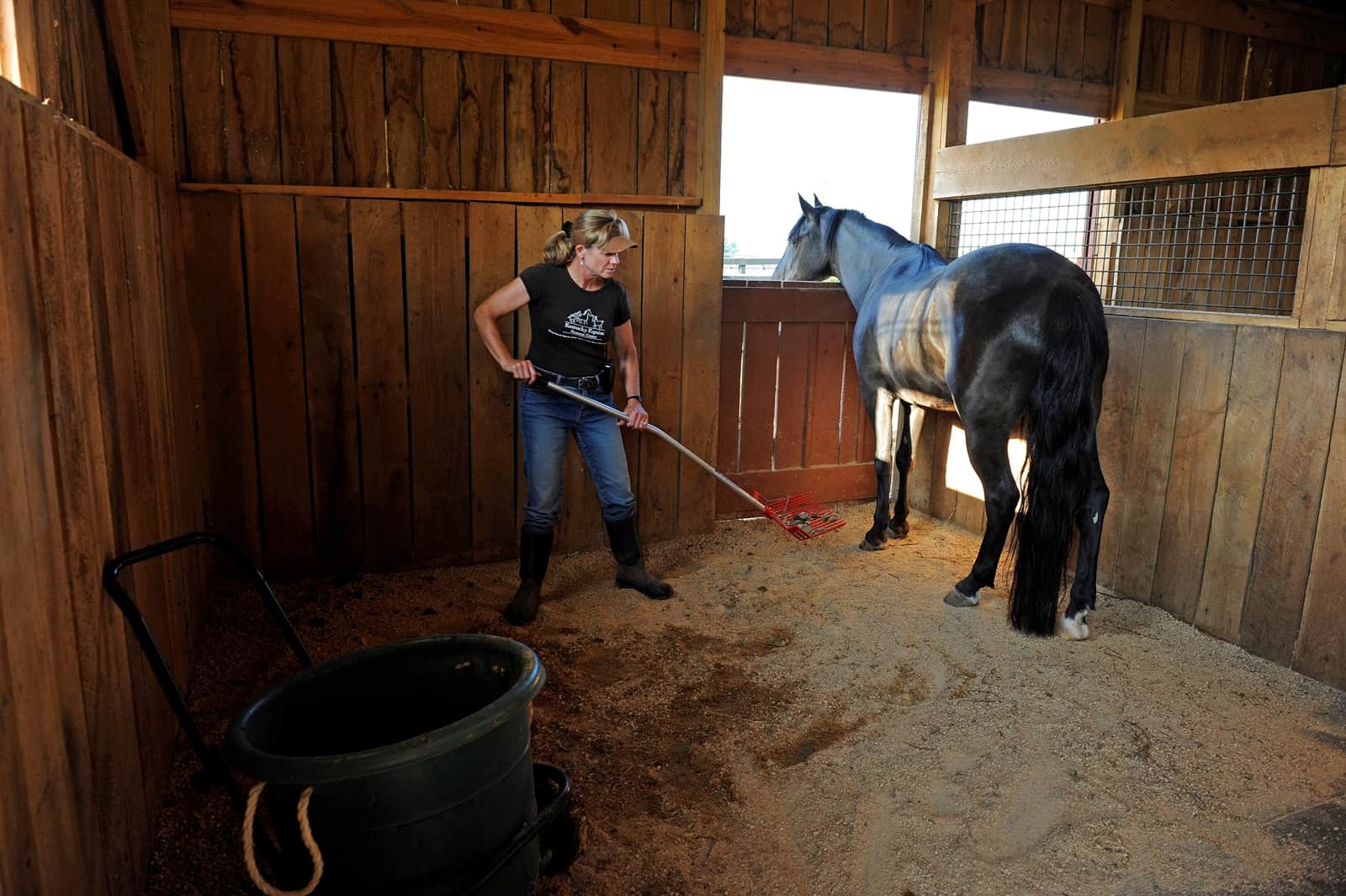Crude Protein Intake Influences Horses’ Ammonia Emissions

We horse owners associate an array of scents with barns. Some—freshly cut hay, clean leather, or a new bag of grain—never get old. Others—such as that burning ammonia odor—are not only foul-smelling but can also harm horse and human health.
Ammonia results from the breakdown of undigested nitrogen from protein in feces and urine, and much research has focused on how it impacts air quality. Recently, a group of scientists took a closer look at how dietary protein and bedding type impact ammonia emissions.
A group of researchers led by Jessie Weir, PhD, of the University of Florida’s Department of Animal Sciences, and Hong Li, PhD, of the University of Delaware, randomly assigned nine mature geldings to one of three dietary treatments supplying crude protein at 10.6% (LOW-CP), 11.4% (MED-CP), or 12% (HIGH-CP) of dry matter intake (DMI) per day. This would amount to roughly 11.5% to 15.5% crude protein in the total diet on an as-fed basis. During each test period, the horses had 11 days to adapt to the dietary treatment before a three-day fecal and urine collection phase. Every eight hours, the researchers emptied the horses’ waste collection harnesses, recorded the urine and fecal water pH, weighed total feces and urine, and froze a representative sample of each. Then, the team rotated the horses through the treatments so all horses consumed each diet
Create a free account with TheHorse.com to view this content.
TheHorse.com is home to thousands of free articles about horse health care. In order to access some of our exclusive free content, you must be signed into TheHorse.com.
Start your free account today!
Already have an account?
and continue reading.
Written by:
Kristen M. Janicki, MS, PAS
Related Articles
Stay on top of the most recent Horse Health news with















